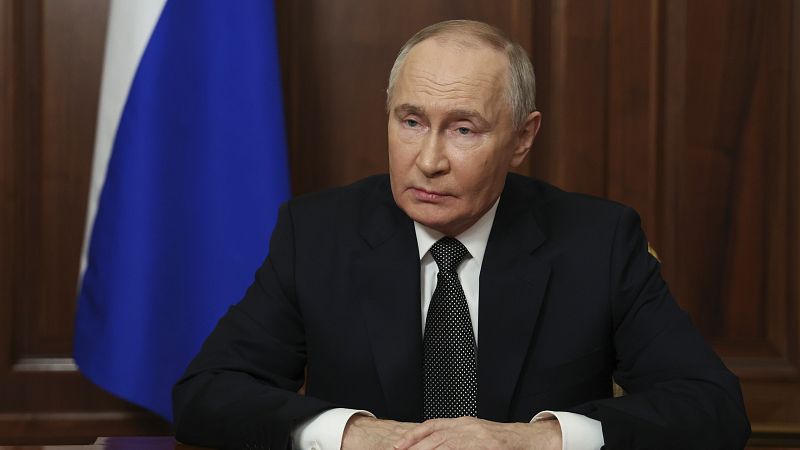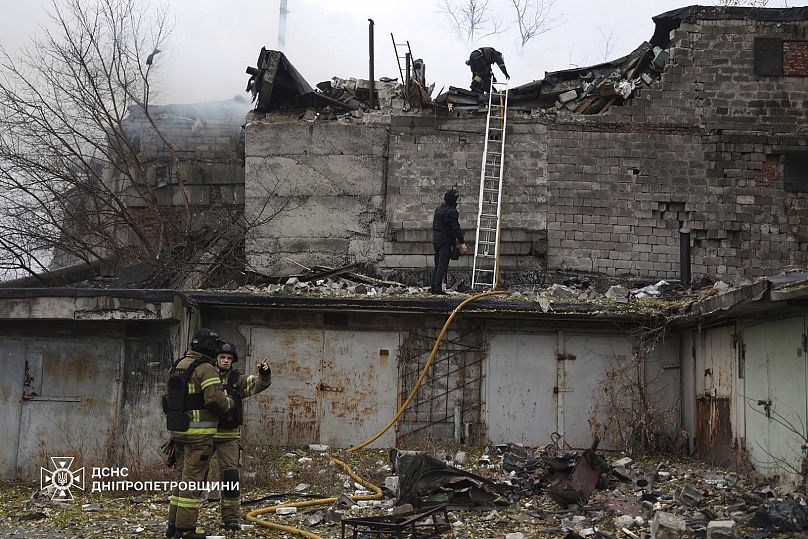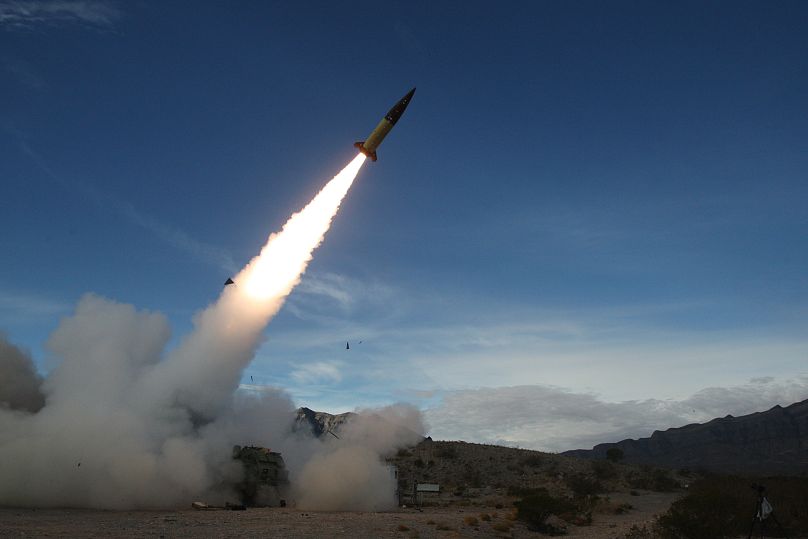Putin says new 'Oreshnik' missile test on Ukraine a response to NATO aggression

Russia's president Vladimir Putin has blamed what he calls "the aggressive actions of NATO countries" for Moscow testing a new intermediate-range missile in a strike on Ukraine.
Thursday's strikes on Dnipro using the new 'Oreshnik' missile wounded at least two people and damaged an industrial facility and a rehabilitation centre for people with disabilities.
Putin said Russia was conducting "combat tests" of the new missile system in response to Ukrainian strikes earlier this week using US and British missiles.
"The targets for destruction during further tests of our newest missile systems will be determined by us based on the threats to the security of the Russian Federation. We consider ourselves entitled to use our weapons against military facilities of those countries that allow their weapons to be used against our facilities," Putin said in a national television address.
"And in the event of an escalation of aggressive actions, we will respond just as decisively and in kind. I recommend that the ruling elites of those countries that are hatching plans to use their military contingents against Russia seriously think about this."
Ukraine's air force initially claimed that Russia had fired an intercontinental ballistic missile (ICBM) but US and UK intelligence sources later downgraded this to an intermediate-range ballistic missile (IRBM).
The Ukrainian Air Force said in a statement that the attack on Dnipro was launched from Russia's Astrakhan region, on the Caspian Sea.
In his nightly video address, Ukraine's president Volodymyr Zelenskyy slammed Russia's use of the 'Oreshnik', saying Putin was using Ukraine as a "training ground".
"Today, our crazy neighbour has once again shown what he really is and how he despises dignity, freedom, and human life in general. And how afraid he is," he said.
"He is so afraid that he is already using new missiles. And he is looking around the world for weapons. Sometimes in Iran, sometimes in North Korea."
Pentagon deputy press secretary Sabrina Singh confirmed that Russia's missile was a new, experimental type of intermediate range missile based on its RS-26 Rubezh intercontinental ballistic missile.
"This was new type of lethal capability that was deployed on the battlefield, so that was certainly of concern," Singh said, noting that the missile could carry either conventional or nuclear warheads.
The US was notified ahead of the launch through nuclear risk reduction channels, she said.
A spokesperson for Ukraine's Ministry of Foreign Affairs said Kyiv was already taking a number of political and diplomatic steps in response to the missile test.
"I think that today's provocation by the Moscow regime, once again, proves the policy of peacekeeping, which has never worked and is not working now. All these calls, all these visits, requests for peace only feed the appetite for aggression and encourage the aggressor to expand the war, to raise the stakes, so we need peace through strength," said Heorhii Tykhyi.
Escalating tensions
The strikes by Russia come in a week when tensions have soared as the US eased restrictions on Ukraine's use of American-made longer-range missiles inside Russia, while Russian President Vladimir Putin lowered the threshold for using nuclear weapons.
Earlier this week, US President Joe Biden gave Ukraine authorisation to use US-supplied, longer-range missiles to strike military targets deeper inside Russia.
That move drew an angry response from Moscow with Putin previously warning that if Western allies permitted Ukraine to use their weapons on Russian territory then Russia would be "at war" with NATO.
According to the Kremlin, Ukraine fired several of the Army Tactical Missile System (ATACMS) into Russia on Tuesday.
And a day after that, Ukraine used up to 12 British-French-made Storm Shadow missiles for strikes into Russia's Kursk region.
Also this week, Putin signed a new doctrine that allows for a potential nuclear response, even to a conventional attack on Russia, by any nation that is supported by a nuclear power.
US officials have said the change in the Biden administration police was a response to Russia using thousands of troops from North Korea to support Moscow's forces in the conflict.



